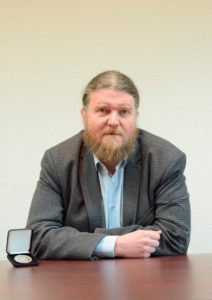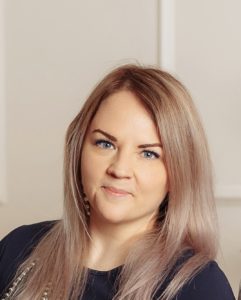A UK-Russia Arctic Science Links Webinar with the Federal Research Centre Kola Science Centre of the Russian Academy of Sciences.
Time: 5 March 2021, 11:00-12:00pm UK time
Organisers: NERC Arctic Office, UK Science and Innovation Network in Russia, Federal Research Centre Kola Science Centre RAS
Recording: If you missed the event, the recording is now available.
Access Passcode: 6x8Z&fEw
Summary
Join the webinar with the Kola Science Centre for an exciting Arctic science journey to the Murmansk region. You will get to hear about some of the Centre’s recent and ongoing scientific projects in biological and environmental research, geology, mineralogical studies, human adaptation to the northern conditions, social and economic studies of local and indigenous communities and beyond. This is a chance to discover some of the Centre’s extensive research infrastructure, including experimental sites, that are open to international partners; explore opportunities for Arctic fieldwork; learn more about the region and what makes it a unique research environment.
Located in the north of Russia, in the city of Apatity (the Murmansk region), the Kola Science Centre is a truly unique place for Arctic research. Member of the UArctic, IASSA and the IASC’s dispersed secretariat, partner to INTERACT network, the Centre is an internationally recognized and active research player. For instance, the Centre is actively involved in six large projects within the Kolarctic CBC Programme and a range of projects under the Horizon 2020 Framework Programme. It is home to several museum collections, including the Geology and Minerology Museum (9270 samples of minerals, ores and rocks from all over the Kola Peninsula), and the Museum-Archive of History of Study and Development of the European North.
The Kola Science Centre has links with the UK science community and has been involved in bilateral science collaborations. In the winter of 2019 and 2020, the Centre together with APECS Russia and UK Polar Network designed and delivered the ARCTIS courses – two bespoke UK-Russia interdisciplinary field courses for early career researchers in the Russian Arctic. ARCTIS2019 was hosted by the Kola Science Centre in the Murmansk region. In 2021 KSC is co-implementing the “UK-Russia Arctic science priorities project” which aims to develop the roadmap to successful UK-Russia science collaborations.
Speakers
 Dr Sergey Krivovichev
Dr Sergey Krivovichev
Chairman of FRC Kola Science Centre of the Russian Academy of Sciences (Apatity, Kola Peninsula); Head of the Department of Crystallography at the Institute of Earth Sciences, St. Petersburg State University
Dr. Sergey Krivovichev is Doctor of Geological and Mineralogical Sciences and Vice-President of the Russian Mineralogical Society. He is a Corresponding Member of the Russian Academy of Sciences (RAS) (Department of Earth Sciences) and sits on RAS’s Science Council for the Arctic and Antarctic Studies. Dr. Krivovichev is the Leading Editor of the “European Journal of Mineralogy”. Dr. Krivovichev has recently been awarded the Schlumberger Medal, the most prestigious award of the Mineralogical Society of Great Britain and Ireland.
 Ms Yulia Zaika
Ms Yulia Zaika
Head of the International Department, FRC Kola Science Centre RAS
Yulia is also a researcher at the Luzin Institute for Economic Studies at the Kola Science Centre. Her international working experience includes the role of Secretary at the ISIRA (International Science Initiative in the Russian Arctic) Advisory Group of the International Arctic Science Committee (IASC) and the Book Reviews Editor at the Polar Record journal of Scott Polar Research Institute, Cambridge University.
Background
Federal Research Centre Kola Science Centre of the Russian Academy of Sciences
Kola Science Centre is Russia’s only Federal Research Centre that is entirely located beyond the Arctic Circle. Based in Apatity, in the Murmansk region, the Centre is a comprehensive scientific institution that carries out fundamental studies of high-latitude environment in the Euro-Arctic region and provides a scientific basis for assessing the resource potential and developing a rational strategy for the North by implementing interdisciplinary and multidisciplinary research. In 2020 the Centre celebrated its 90th anniversary.
At present, the Kola Science Centre comprises ten research institutes, three youth laboratories and an extensive network of support units and experimental areas, located across the vast Arctic territories including the Svalbard Archipelago (the Centre’s research base “Barentsburg” founded in 1986).
The scientific scope of the Kola Science Centre and its subdivisions covers different disciplines including but not limited to mining and geology, chemistry, ecology, informatics, economics and humanitarian studies, energetics, nanomaterials, medicine and human adaptation to the Arctic environment.
International cooperation is an important part of the development strategy of the Arctic zone of the Russian Federation and one of the priorities of the Kola Science Centre of the Russian Academy of Sciences. Throughout its 90-year history, the Kola Science Centre has developed well-established partnerships and friendships with many research and international networks, organizations, as well as universities around the world. Today the Kola Science Centre collaborates with 88 organizations from more than 30 countries. It has more than 45 active partnership agreements and an extensive list of project activities in international research.
For more details on the Centre visit: https://www.ksc.ru/ ; https://www.facebook.com/FRCKSCRAS